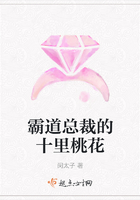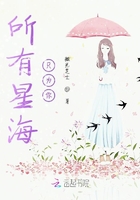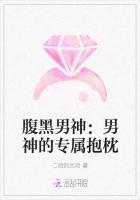"But you must admit that your leaving Lavinia quite alone was a great change for her, and that it was natural she should want some society.""I do admit that, and that is why I shall make no row about the wine; I shall set it down as compensation to Lavinia.She is capable of telling me that she drank it all herself.Think of the inconceivable bad taste, in the circumstances, of that fellow ****** free with the house- or coming there at all! If that doesn't describe him, he is indescribable.""His plan is to get what he can.Lavinia will have supported him a year," said Mrs.Almond."It's so much gained.""She will have to support him for the rest of his life, then," cried the doctor, "but without wine, as they say at the tables d'hote.""Catherine tells me he has set up a business, and is ****** a great deal of money."The doctor stared."She has not told me that- and Lavinia didn't deign.Ah!" he cried, "Catherine has given me up.Not that it matters, for all that the business amounts to.""She has not given up Mr.Townsend," said Mrs.Almond."I saw that in the first half-minute.She has come home exactly the same.""Exactly the same; not a grain more intelligent.She didn't notice a stick or a stone all the while we were away- not a picture nor a view, not a statue nor a cathedral.""How could she notice? She had other things to think of; they are never for an instant out of her mind.She touches me very much.""She would touch me if she didn't irritate me.That's the effect she has upon me now.I have tried everything upon her; I really have been quite merciless.But it is of no use whatever; she is absolutely glued.I have passed, in consequence, into the exasperated stage.At first I had a good deal of a certain genial curiosity about it; I wanted to see if she really would stick.But, good Lord, one's curiosity is satisfied! I see she is capable of it, and now she can let go.""She will never let go," said Mrs.Almond.
"Take care, or you will exasperate me too.If she doesn't let go, she will be shaken off- sent tumbling into the dust.That's a nice position for my daughter.She can't see that if you are going to be pushed, you had better jump.And then she will complain of her bruises.""She will never complain," said Mrs.Almond.
"That I shall object to even more.But the deuce will be that Ican't prevent anything."
"If she is to have a fall," said Mrs.Almond, with a gentle laugh, "we must spread as many carpets as we can." And she carried out this idea by showing a great deal of motherly kindness to the girl.
Mrs.Penniman immediately wrote to Morris Townsend.The intimacy between these two was by this time consummate, but I must content myself with noting but a few of its features.Mrs.Penniman's own share in it was a singular sentiment, which might have been misinterpreted, but which in itself was not discreditable to the poor lady.It was a romantic interest in this attractive and unfortunate young man, and yet it was not such an interest as Catherine might have been jealous of.Mrs.Penniman had not a particle of jealousy of her niece.For herself, she felt as if she were Morris's mother or sister- a mother or sister of an emotional temperament- and she had an absorbing desire to make him comfortable and happy.She had striven to do so during the year that her brother left her an open field, and her efforts had been attended with the success that has been pointed out.She had never had a child of her own, and Catherine, whom she had done her best to invest with the importance that would naturally belong to a youthful Penniman, had only partly rewarded her zeal.Catherine, as an object of affection and solicitude, had never had that picturesque charm which (as it seemed to her) would have been a natural attribute of her own progeny.
Even the maternal passion in Mrs.Penniman would have been romantic and factitious, and Catherine was not constituted to inspire a romantic passion.Mrs.Penniman was as fond of her as ever, but she had grown to feel that with Catherine she lacked opportunity.
Sentimentally speaking, therefore, she had (though she had not disinherited her niece) adopted Morris Townsend, who gave her opportunity in abundance.She would have been very happy to have a handsome and tyrannical son, and would have taken an extreme interest in his love affairs.This was the light in which she had come to regard Morris, who had conciliated her at first, and made his impression by his delicate and calculated deference- a sort of exhibition to which Mrs.Penniman was particularly sensitive.He had largely abated his deference afterward, for he economized his resources, but the impression was made, and the young man's very brutality came to have a sort of filial value.If Mrs.Penniman had had a son, she would probably have been afraid of him, and at this stage of our narrative she was certainly afraid of Morris Townsend.
This was one of the results of his domestication in Washington Square.
He took his ease with her- as, for that matter, he would certainly have done with his own mother.















